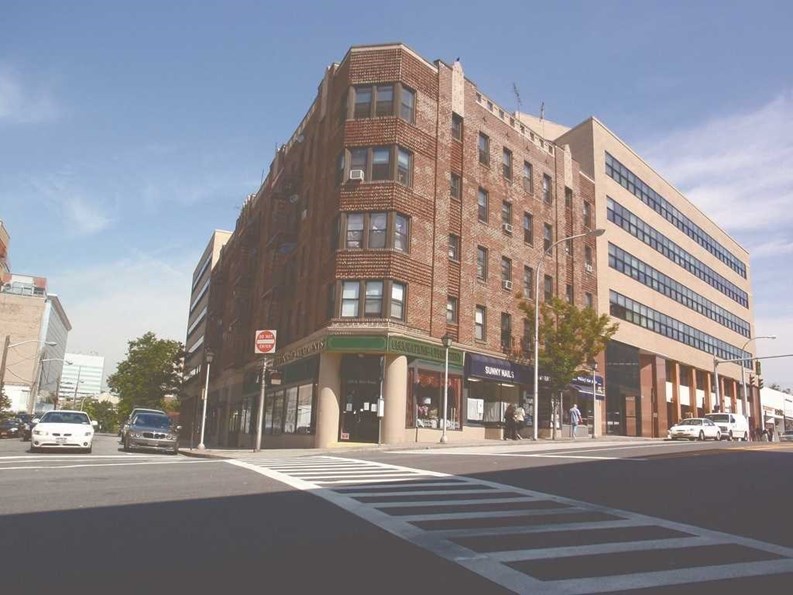Thirty minutes outside of Manhattan, the city of White Plains has grown from a historic colonial village to a thriving retail and cultural hub, offering a more placid but not at all mundane environment for both its citizens, visitors, and the frazzled New Yorker, looking for a quick weekend escape.
A Revolutionary Past
White Plains' history is anything but plain. The area was first utilized as farmland in the early 17th century by the Weckqueskeck Indians, members of the Mohican tribe. In 1683, a group of Connecticut Puritans purchased about 4,000 acres of land and established the first colonial settlement. Legend has it that traders dubbed the area 'White Plains' because of either the white balsam that covered the area or the heavy mist that crept in from the swamps near the Bronx river. In the following years, the city became a hub for major events of the American Revolution including the Battle of White Plains and the legendary first reading of the Declaration of Independence on July 11, 1776 on the steps of the courthouse. The Declaration not only declared the colony's independence but also marked the formation of the State of New York, giving White Plains the corresponding nickname, “The Birthplace of New York.” Even first president and face of our dollar bill, George Washington led his troops through this hilly region and used the famous Jacob Purdy house as his headquarters, which is now home to the White Plains historical society.
Retail Therapy
In the early 20th century, White Plains quickly left its bayonets and pilgrim hats behind with the downtown developing into a prestigious retail and shopping district. Stores such as Macys, Bergdorf Goodman, Saks Fifth Avenue, Nordstrom and Bloomingdales provided the most chi-chi and internationally renowned fashions to White Plains. In the 1950s, many large corporations decided to bypass the congestion and high rents of New York City, moving their headquarters to White Plains instead. These included Snapple, Heineken, PepsiCo, General Foods and IBM. In the 1970s, the construction of the Galleria of White Plains Mall sparked an increased interest in downtown retail and residential development. The mall currently occupies 900,000 square feet, has over 140 shops and restaurants, and attracts 13 million visitors a year.
In the peak of the economic boom of the ‘80s, at least 50 of the Fortune 500 companies called the city home. While the recession has forced many to close their doors, there are still many telecommunications and retail companies that conduct international business out of White Plains including Nine West Group, Verizon Wireless, Nokia, and AT&T. The 1990s and early 2000s saw the completion of several large retail projects including The Westchester and The Source at While Plains, adding greater variety to the shopping spectrum. Mamaroneck Avenue, White Plains' own Fifth Avenue, has a variety of boutiques, fine dining, cafes, and nightlife.
More than Just Shopping
While the infinite retail possibilities can make any recovering shopaholic go into remission, there is more to White Plains than shopping till you drop. The city has a multitude of parks and trails offering a break from the city and a chance to relax and get in touch with nature. Silver Lake in Liberty Park is the perfect place to picnic. You can also catch a cheaper but just as skilled Broadway show at the White Plains Performance Arts Center, which allows residents to be spectators but also performers with voice and theater lessons. In the downtown, Renaissance Plaza is a welcoming place to sit down, enjoy one of the many fountains, or people watch.
And while the star gazing may be less stellar than New York City, you may get a glimpse of one of White Plains' celebrities such as NBA forward Channing Frye, Jewish-American reggae artist Matisyahu, and maybe you can even befriend Facebook CEO Mark Zuckerberg, who was born here.
White Plains also offers a diverse housing market, ranging from affordable condos and townhouses to luxury residences with spas and fitness clubs. One City Place, The Residences at Ritz Carlton, and Trump Tower are some of the newest luxury housing options all located within close proximity of the downtown. Thirty percent of housing in White Plains is designated as “affordable housing,” including complexes such as The Minerva, which is one of only a few geothermal residences in the nation. With lower home prices than New York City ($500,000 in 2009), many individuals may decide to live in White Plains and commute into New York City.
A short ride from the city limits, White Plains maintains a bustling urban environment while also incorporating a more suburban lifestyle. With more than abundant shopping, dining, outdoor recreation and entertainment, this diversity is why over 57,000 residents decide to call White Plains home.
Maggie Puniewska is an editorial assistant at The Cooperator.





Leave a Comment